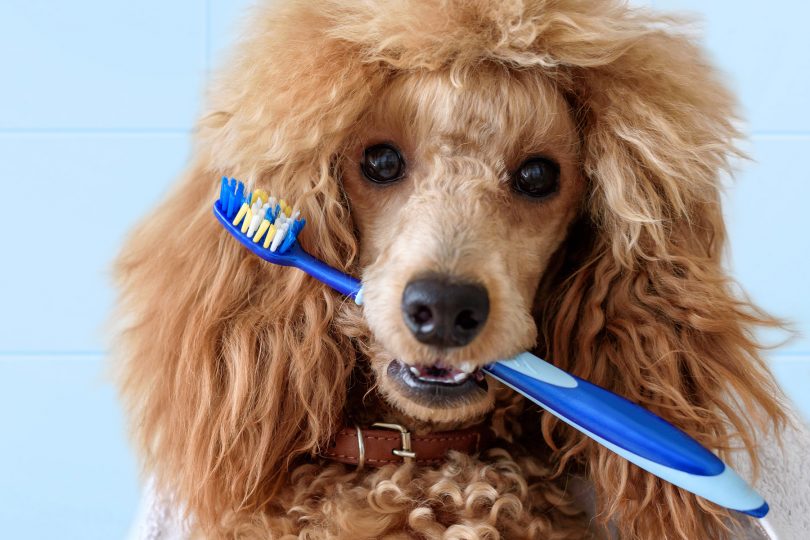Did you know that failure to care for your dog’s teeth may lead to damage to the jaw, heart disease, and other fatalities? Some dog keepers may not be aware that there are toothbrushes and kinds of toothpaste for dogs. Other measures like the use of mouthwash, dental diets, and vet cleanings are available. Read along for advice and tips on maintaining your dog’s dental health.
How to Brush Your Dog’s Teeth
Never attempt to use human toothbrushes or pastes on your dog. They contain toxins that could harm the dog if it ingests them. You can get a dog toothbrush and a chicken or beef-flavored toothpaste from your nearest vet.
How many times are perfect for brushing your dog’s teeth?
Brush them daily. Start as early as when it is still a puppy to make it get used to the process as it grows. For an older dog, training may not be difficult since the flavored toothpaste is inviting.
Once the dog develops interest, start brushing using slow strokes. Ensure you brush every tooth as the dog enjoys the flavor of the paste. Doing this daily protects your dog from plaque and possible cases of periodontal disease.
Encourage Your Dog to Chew More
Regular chewing helps the dog clean its teeth surfaces and prevents tartar. There are several tricks that you can apply to make your dog chew. Here are a few suggestions.
• Bones: As the dog gets busy chewing on a bone, food deposits on the surfaces and crevices come out.
• Chewing toys engage your dog in playful chewing and serve the same purpose as bones.
• Larger dry kibbles are a better dental-specific diet that makes the dog chew and produce more saliva. Saliva protects the teeth from the accumulation of plaque.
The chewing exercises are essential in cleaning teeth surfaces. Although they may not reach the gum, they serve as a complement to the use of brush and mouth wash.
How to Give Your Dog a Mouthwash
Your dog will not need to gargle when using the mouthwash. If you approach a qualified veterinarian, he or she will recommend the safest and most efficient mouthwash for your dog. Different rinses are useful for different dog oral health issues. The opinion of the vet is, therefore, very crucial.
Once you have the right product, ensure you add it to the dog’s water. Your dog will not gargle the mouthwash, but the anti-bacterial oral rinse will still serve its purpose. Giving mouthwash regularly to the dog will help it get rid of bacteria. It will also neutralize the formation of plaque.
Other ways of Maintaining Your Dog’s Dental Health:
• Using dog tooth wipes regularly
• Scheduling annual professional cleaning with the veterinarian
• Purchase dental treats with breath-freshening components
Maintaining a dog’s oral hygiene is not an option if you expect it to remain healthy. Make it your routine to clean your dog’s mouth thoroughly in the same way you clean yours. You may want to seek professional guidance from veterinarians and other pet experts in dog oral health.

